Chinese luxury consumers are becoming more sophisticated, more global and more digital. Therefore, a WeChat Mini Program tailored for them is essential writes Lionel Sim and Tom Pattinson
By 2025, 7.6 million Chinese households will represent RMB 1 trillion in global luxury sales, an amount that is double that of 2016, and equivalent to the size in 2016 of the French, Italian, Japanese, UK and US markets combined. According to a McKinsey report, 30 percent of luxury purchases are directly influenced by word of mouth, up from only 14 percent in 2010, and WeChat Mini Programs (MPs) enables a range of strategies for such social marketing.
Exclusivity: DFS Master of Time
DFS’s Mini Program (MP) showcased an exclusive range of fine watches and accessories, and with its large visuals, it created a polished and premium feel. Users would indicate their desired product from the catalogue and leave their contact details for a member of the DFS team to contact them.
The strong visuals acted to generate emotional appeal and a strong brand identity. The exclusive range of products and targeted marketing, such as VIP appointment booking, also worked well.
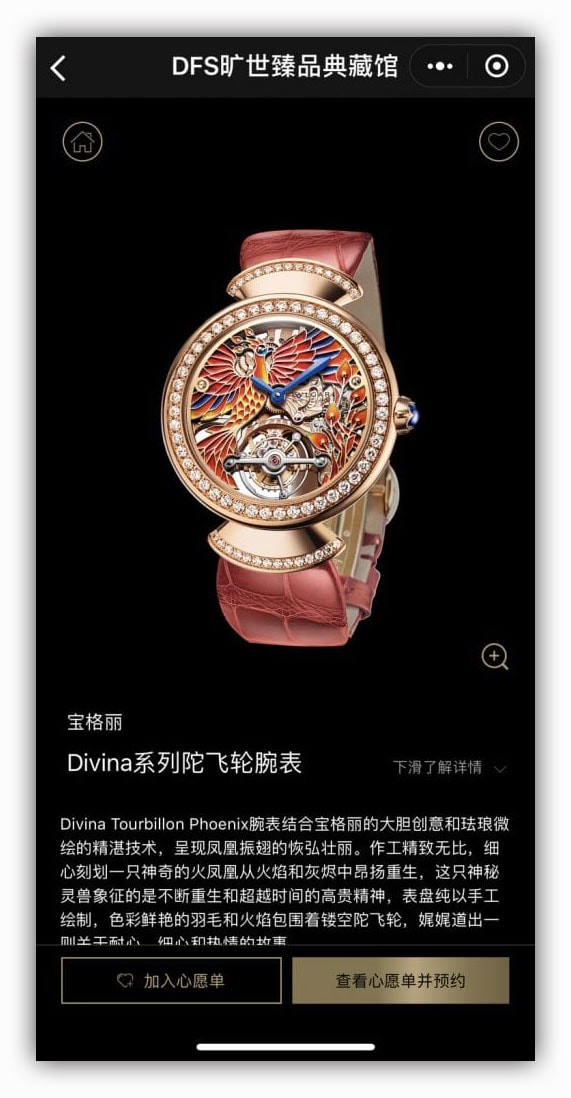
Exclusivity promotes strong emotional appeal in luxury marketing
Limited Time Offer: Rimowa x Off White
The Rimowa x Off White MP is a unique partnership that leverages impulse purchase behaviour together with the potential for viral activity within the MP. The limited time offer is particularly useful for luxury brands that wish to launch exclusive offers to customers.
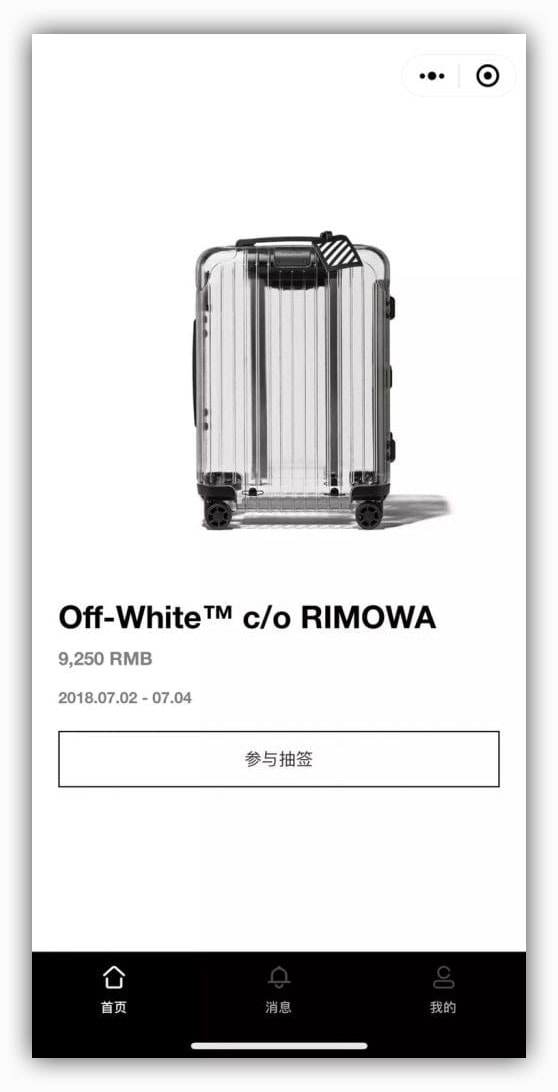
Chinese luxury consumers are increasingly influenced by impulse purchases
Gamification: Gucci
One of the key features of the Gucci MP is that it enables you to put a virtual mask on your selfie or picture. Using photographic filters in this way could potentially attract millennial consumers to try it out and share the resulting image with their social networks.
Through this, a sense of brand authenticity ownership is encouraged and Gucci works to convert their consumers into brand ambassadors through playful and interactive digital expression.
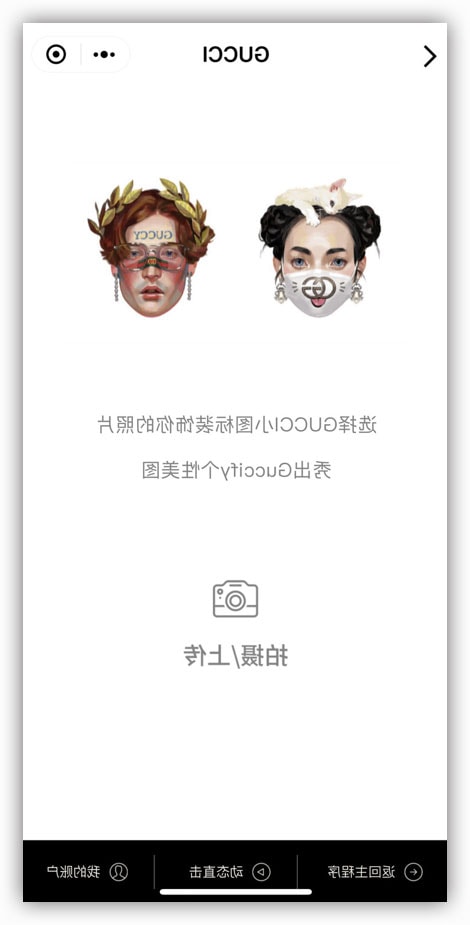
Promoting Brand Authenticity is important in luxury marketing
Personalisation: Sergio Rossi
Sergio Rossi’s MP allows users to customise their desired heel based on colour, size and a personalised engraving. Such individualisation is especially important among Chinese luxury consumers who are attracted to the authenticity and sophistication it suggests.
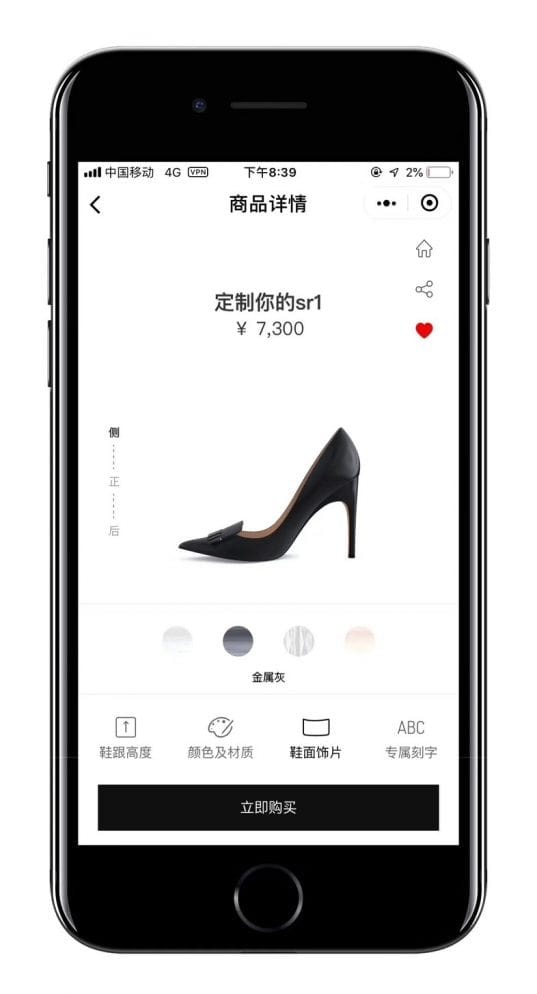
Personalisation provides luxury consumers more freedom of expression
Social Gifting: Dior
Dior allows shoppers to buy virtual gift cards and send them to their friends via their MP. They are the first of the luxury brands to implement social gifting, taking advantage of the importance of social relationships and guanxi in China.
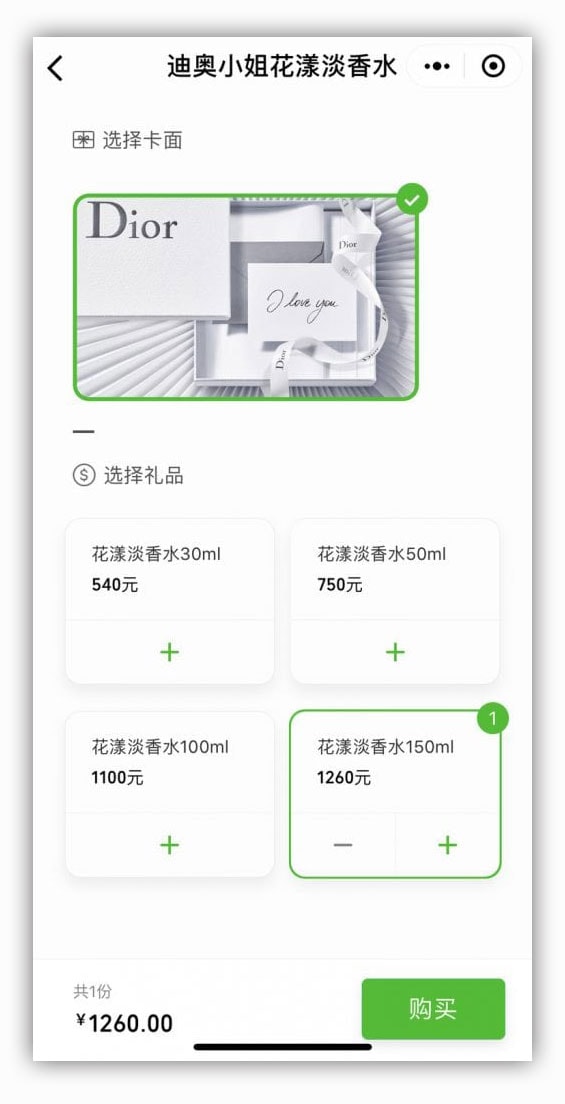
Social Gifting leverages the power of social recommendations


